Group Leader Profiles
| Research | ||
|---|---|---|
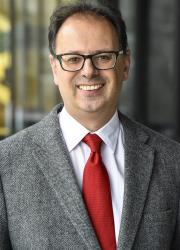 |
Prof. Dr. Ali AlaviDirector at the Max Planck Institute for Solid State Research (MPI-FKF)homepage |
Electronic Structure Theory The research in the Electronic Structure Theory department is largely concerned with the development of accurate methods to solve many-electron Schrodinger and more generally many-body type eigenvalue problems, which can handle electron correlation and spin-related phenomena, as well as ameliorating basis set errors which rise from slow-basis set convergence which appears in ab initio descriptions. These are problems for which exact solutions generally require exponentially large amounts of computer resources. Progress in such problems usually requires approximate techniques, such as stochastic diagonalisation and related active-space methods, coupled-cluster theory, as well as explicitly correlated methods such as "transcorrelation". We welcome enquiries from qualified individuals (with a Masters in a relevant field of theoretical chemistry or physics). Research Method and Area: Theoretical and Experimental Chemistry |
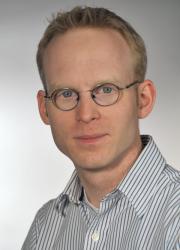 |
PD Dr. Christian AstGroup Leader at the Max Planck Institute for Solid State Research (MPI-FKF)homepage |
Quantum Materials and Nanoelectronics - Atomic Scale Spectroscopy The research in our group is focused on the electronic and magnetic properties of few level systems looking for new quantum limits at the atomic scale. We are exploiting the interplay of magnetism, superconductivity, and correlation effects to isolate few level systems and understand their dynamics. Using scanning tunneling microscopy at lowest temperatures (between 10mK and 500mK), we study individual magnetic impurities coupled to superconducting substrates. We are interested in the resulting phenomena, such as Yu-Shiba-Rusinov states, and their suitability for quantum sensing or information processing. In addition, we combine electron spin resonance spectroscopy with scanning tunneling microscopy to understand and manipulate single spin systems isolated from their enviornment. Research Method and Area: Experimental Physics |
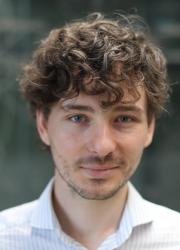 |
Dr. Julien BarrierGroup Leader at the Max Planck Institute for Solid State Research (MPI-FKF)homepage |
Low-dimensional quantum electronics The emergence of strongly correlated electronic phases remains one of the unsolved puzzles of modern condensed matter physics. In low dimensions, the strength of interactions between electrons is enhanced, which make these systems prime candidate to understand the origin of emerging electronic phases, with the added benefit of metrology and quantum computing applications. Our research group combines nanofabrication of graphene structures, local probes and quantum transport at ultra-low temperatures to induce, control and explore strong electron interactions in one- and two-dimensional systems. We experimentally control the magnitude of electron-electron interactions in quantum materials to understand the interplay between quantum confinement, non-trivial topology and interaction strength. Research Method and Area: Experimental Physics |
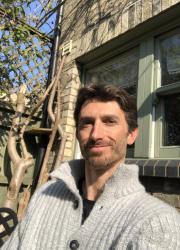 |
Prof. Claudio CastelnovoProfessor of Theoretical Physics at the University of Cambridgehomepage |
I am part of the Theory of Condensed Matter group at the Cavendish Laboratory of the University of Cambridge. My interests lie in the area of emergent and out of equilibrium phenomena in strongly correlated many body systems. Current research topics include topological phases of matter; frustrated magnetism; response and equilibration properties of systems with fractionalised excitations; quantum information and quantum computing; effects of hard constraints in classical and quantum systems; freezing and glassiness. If you are potentially interested in a PhD at the MPGC under my supervision (typically jointly with Prof.Moessner at the MPIPKS), you will also need to apply for a PhD at Cambridge, as acceptance at both is required. You can find instructions, useful links, and further information about the Theory of Condensed Matter group at Cambridge here: http://www.tcm.phy.cam.ac.uk/vacancies/postgrad.html Research Method and Area: Theoretical Physics |
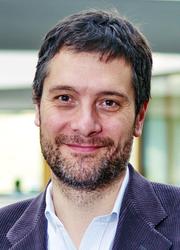 |
Prof. Andrea CavalleriDirector Max Planck Institute for the Structure and Dynamics of Matter in Hamburg and Professor of Physics (part time) at the University of Oxfordhomepage |
The Condensed Matter Dynamics group is led by Prof. Andrea Cavalleri and focuses on non-equilibrium phenomena in solids. Especially, we investigate how electronic and structural order can emerge as a result external drives, how transitions occur in solids dynamically and how energy flows into and away from a solid. Light-control of superconductivity, ferroelectricity, magnetism and of topological phase transitions have been at the centre of our research. Research Method and Area: Experimental Material Science, Physics |
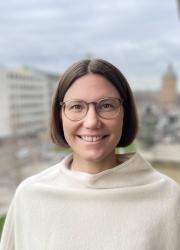 |
Dr. Laura ClassenGroup Leader at the Max Planck Institute for Solid State Research (MPI-FKF)homepage |
Correlated Phases in Quantum Materials The understanding of fundamental, physical processes in quantum materials and the identification of universal aspects among them constitutes a necessary basis for the design of new quantum materials with desired functionalities. Our group investigates the collective behavior of interacting electrons which gives rise to the many fascinating phases of matter in quantum materials. We seek to explain the underlying mechanisms behind the phase formation and to determine characteristic properties of the different phases.We are particularly interested in situations when excitations of different phases strongly interact so that it is essential to consider their mutual influence on each other. This includes, for example, the study of quantum phase transitions or unconventional superconductivity. To account for the decisive role of interactions and the interplay of different degrees of freedom in these complex situations, we employ modern, field-theoretical tools with an emphasis on renormalization group techniques. We make use of microscopic and effective descriptions inspired by experimental observations to obtain a comprehensive picture of correlated phases in quantum materials. Research Method and Area: Theoretical Physics |
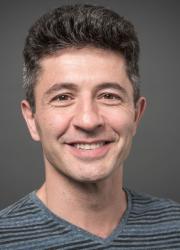 |
Prof. Andrea DamascelliFull Professor at the Dept. of Physics & Astronomy, UBC, Canadahomepage |
Our group develops and utilizes angle-resolved photoemission spectroscopy (ARPES) and its time- and spin-resolved variants, as well as resonant x-ray scattering (RXS), to push the limits of these techniques and gain a deeper understanding of quantum materials and new phases of matter. Leveraging facilities established at QMI in the UBC-Moore Centre for Ultrafast Quantum Matter and the Quantum Materials Spectroscopy Centre at the Canadian Light Source, we pursue the engineering of the electronic structures of these materials through in situ adatom deposition, strain, and the optical coherent control of electronic states via pulsed laser excitations. Research Method and Area: Experimental Physics |
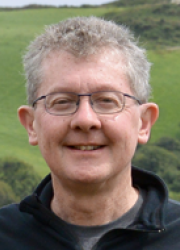 |
Séamus DavisProfessor of Physics at the Oxford University, UK, Professor of Quantum Physics at the University of College Cork, Ireland, Fellow at the Max Planck Graduate Center for Quantum Materials and Emeritus Professor of Physics at the Cornell Universityhomepage |
Davis Group research concentrates upon the fundamental physics of exotic states of electronic, magnetic and atomic quantum matter. A specialty is development of innovative instrumentation to allow direct atomic-scale visualization or perception of the quantum many-body phenomena that are characteristic of these states. Research Topics:
Research Method and Area: Theoretical and Experimental Physics |
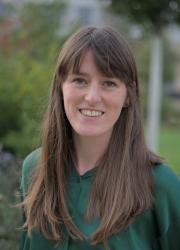 |
Dr. Claire DonnellyLise Meitner Research Group Leader at the Max Planck Institute for Chemical Physics of Solids, Dresden (MPI CPfS)homepage |
Research topics:
Research Method and Area: Theoretical and Experimental Material Science, Physics |
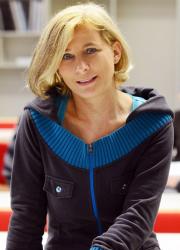 |
Prof. Claudia DraxlProfessor at the Humboldt-Universität zu Berlin, Germany and Fellow at the Max Planck Graduate Center for Quantum Materialshomepage |
Research topics:
Research Method and Area: Theoretical Computer Science, Material Science, Physics |
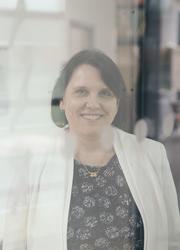 |
Prof. Claudia FelserDirector of the Max Planck Institute for Chemical Physics of Solids, Dresden (MPI CPfS)homepage |
Research topics:
Research Method and Area: Theoretical and Experimental Chemistry, Physics |
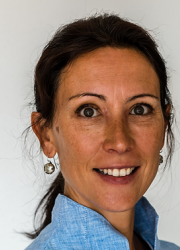 |
Prof. Anna Fontcuberta i MorralFull professor at the EPFL Lausanne and Fellow at the Max Planck Graduate Center for Quantum Materialshomepage |
Research topics:
Research Method and Area: Theoretical and Experimental Physics |
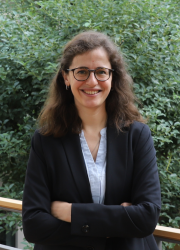 |
Elena GatiGroup Leader at Max-Planck-Institute for Chemical Physics of Solids, Dresdenhomepage |
Research topics:
· Correlated quantum materials: unconventional superconductors, Mott insulators, frustrated magnets, low-dimensional magnets · Strain and pressure tuning · Thermodynamic and transport measurements · Elastic properties of quantum materials in the non-linear regime Research Method and Area: Experimental Physics |
|
|
Prof. Bernhard KeimerDirector at the Max Planck Institute for Solid State Research (MPI-FKF) Speaker of the IMPRS-CMShomepage |
Physics of Strongly Correlated Electron Systems The department uses neutron and X-ray diffraction and spectroscopy as well as optical spectroscopy and Raman scattering to explore the structure and dynamics of materials with strong electron correlations. We also have a strong effort in the development of new spectroscopic methods. As the close collaboration between experimentalists and theorists is essential for progress in this field, a small theory group operates within the department. Research Method and Area: Experimental Physics |
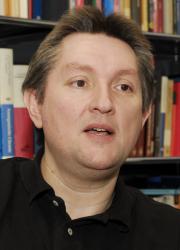 |
Prof. Dr. Klaus KernDirector at the Max Planck Institute for Solid State Research (MPI-FKF) & Professor at the Swiss Federal Institute of Technology, Lausannehomepage |
Nanoscale Science Nanoscience and nanotechnology; surfaces and interfaces; self-organisation phenomena and epitaxial growth; fabrication and characterization of metal, semiconductor and molecular nanostructures; molecular electronics; carbon nanotubes and graphene; clusters and nanocrystals; interactions and processes on the atomic and molecular scale; scanning probe microscopy and spectroscopy; nanooptics Research Method and Area: Experimental Physics |
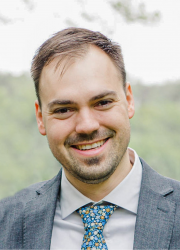 |
Dr. Simon KrauseGroup Leader at the Max Planck Institute for Solid State Research (MPI-FKF)homepage |
Dynamic framework materials and molecular machines Our interdisciplinary research group explores how to teach crystals tricks of living matter by investigating dynamic features of molecular framework materials such as metal-organic and covalent organic frameworks (MOFs and COFs). By specifically tuning the structural topology of the framework, we create soft porous crystals which exhibit pore contraction and/or expansion as a response to the adsorption of gases and fluids or external triggers such as light irradiation. Such materials can act as responsive cargo-release systems, nanoscopic sensors or feature counterintuitive phenomena such as negative gas adsorption. We furthermore construct frameworks which contain molecular machines such as light-driven molecular motors and switches as responsive and intrinsically dynamic building blocks. We aim towards collective operating molecular machines in the solid state which are able to actively transport molecules in the pore space and facilitate dynamic conversion and storage of energy carriers and other small molecules. Our diverse team uses a wide range of synthetic and experimental tools and collaborates in national and international research projects to push the boundaries of dynamic features in crystalline solids. Research Method and Area: Experimental Chemistry, Material Science |
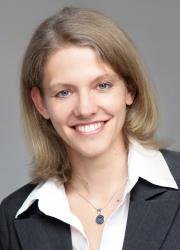 |
Prof. Dr. Bettina LotschDirector, Nanochemistry Department, Max Planck Institute for Solid State Research (MPI-FKF) & Professor at LMU Munich and Stuttgart Universityhomepage |
Materials Chemistry Our research explores the rational synthesis of new functional materials by combining the tools of molecular, solid-state and nanochemistry. Research interests include the design of organic, inorganic and hybrid materials for solar energy conversion and storage, ion conductors for electrochemical energy storage, and “smart” photonic crystals for optical sensing. We aim at creating function from both atomic-scale structure and nanoscale morphology, with a strong emphasis on exploring structure-property relationships based on a variety of diffraction and spectroscopic techniques. Recent activities include the development of molecular frameworks for solar batteries, “dark” photocatalysis, photomemristive sensors, and (photo)electrocatalytic CO2 conversion, the development of quantum materials for (photo)electrocatalysis, as well as the design of lithium and sodium thiophosphate and sulfide solid electrolytes for all-solid-state batteries. Research Method and Area: Experimental Chemistry |
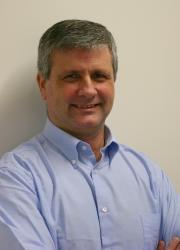 |
Andrew MackenzieDirector of the Max Planck Institute for Chemical Physics of Solids, Dresden (MPI CPfS)homepage |
Research topics:
Research Method and Area: Experimental Chemistry, Physics |
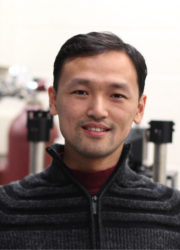 |
Kin Fai MakDirector of the Max Planck Institute for the Structure and Dynamics of Matterhomepage |
• Two-dimensional materials and heterostructures • Spectroscopy • Quantum transport • Strong correlation physics • Topological states of matter • Exciton condensation • Magnetism • Superconductivity Research Method and Area: Experimental Physics |
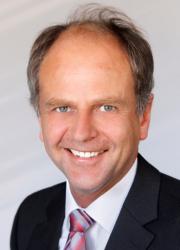 |
PD Dr. Jochen MannhartDirector at the Max Planck Institute for Solid State Research (MPI-FKF)homepage |
Solid State Quantum Electronics The department explores interfaces in complex materials to create and understand new electronic systems, materials, and novel physical phenomena. This work is fundamental science in an area that is also of interest for possible applications. Complex oxide heterostructures are synthesized on the atomic scale by using advanced epitaxial growth techniques. Lateral confinement on the nanometer scale, for example by e-beam lithography, is applied to create complex 1D and 0D electronic systems. The department is furthermore striving to understand and advance thermoelectronic energy conversion, with the goal of creating a method to convert with very high efficiency solar radiation or heat into electricity. Research Method and Area: Experimental Physics |
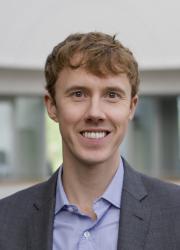 |
Dr. James McIverResearch Group Leader at the Max Planck Institute for the Structure and Dynamics of Matter, Hamburghomepage |
Research topics:
Research Method and Area: Experimental Physics |
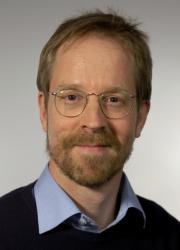 |
Prof. Dr. Walter MetznerDirector at the Max Planck Institute for Solid State Research (MPI-FKF)homepage |
Quantum Many-Body Theory In the Quantum Many-Body Theory department, electronic properties of solids are analyzed and computed with a main emphasis on systems where electronic correlations play a crucial role, such as high temperature superconductor and other transition metal oxides. Besides bulk properties of one-, two- and three-dimensional systems also surface states of topological phases, as well as problems with a mesoscopic length scale such as quantum dots, quantum wires, and quantum Hall systems are being studied. The correlation problem is treated by various modern numerical and field-theoretical techniques. Research Method and Area: Theoretical Physics |
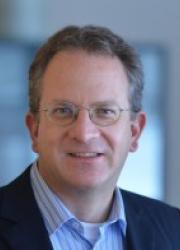 |
Prof. Dr. Roderich MoessnerDirector of the Max Planck Institute for the Physics of Complex Systems, Dresden (MPI PKS)homepage |
Research topics:
Research Method and Area: Theoretical Physics |
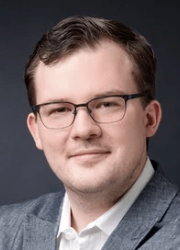 |
Prof. Philip MollDirector of the Max Planck Institute for the Structure and Dynamics of Matterhomepage |
Research topics:
Research Method and Area: Theoretical and Experimental Material Science, Physics |
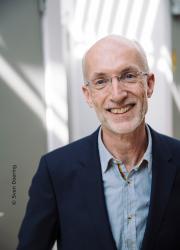 |
Prof. Dr. Stuart ParkinDirector of the Max Planck Institute of Microstructure Physics, Hallehomepage |
Research topics:
Research Method and Area: Experimental Physics |
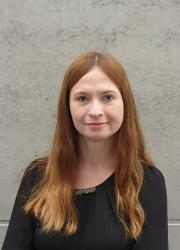 |
Dr. Anna RoslawskaGroup Leader at the Max Planck Institute for Solid State Researchhomepage |
Atomic-scale optics What does a single molecule look like? How can we excite it and control its emission? How can we build more complex molecular structures “by hand”? How can we tune the quantum properties of light with atomic precision? In our research team, we answer these questions using the combination of scanning tunneling microscopy (STM) with optics. This way, we bring the best of the two worlds together, the sub-nm resolution of STM, and all the information carried by photons to study optics at the atomic scale. Using this method we learn previously inaccessible details about mechanisms like light-harvesting, photosynthesis, and electron-to-photon conversion. Research Method and Area: Experimental Chemistry, Physics |
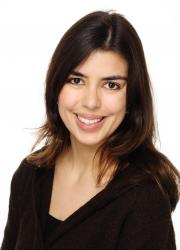 |
Dr. Mariana RossiLise Meitner Research Group Leader at the Max Planck Institute for the Structure and Dynamics of Matter, Hamburghomepage |
Research Topics:
Research Method and Area: Theoretical Chemistry, Computer Science, Material Science, Physics |
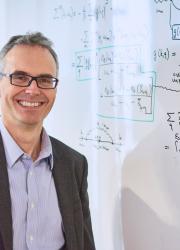 |
Prof. Angel RubioDirector of the Max Planck Institute for the Structure and Dynamics of Matter, Hamburghomepage |
Research topics:
Research Method and Area: Theoretical Physics |
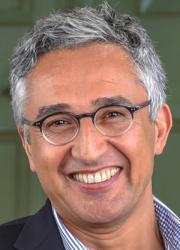 |
Prof. Vahid SandoghdarDirector of the Max Planck Institute for the Science of Light, Erlangenhomepage |
Research topics:
Research Method and Area: Experimental Physics |
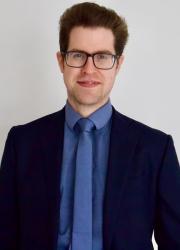 |
Dr. Thomas SchäferHead of Research Group at the Max Planck Institute for Solid State Research (MPI-FKF)homepage |
Theory of Strongly Correlated Quantum Matter Materials with strong electronic correlations are amongst the most intriguing topics at the forefront of research in condensed matter physics. On the one hand, they exhibit fascinating phenomena like quantum criticality and high-temperature superconductivity, bearing a high potential for applications. On the other hand, they are theoretically very appealing due to their limited understanding, even on the very fundamental level. Within the research group “Theory of Strongly Correlated Quantum Matter”, starting from September 2020, the frontier of this fundamental understanding is pushed by applying cutting-edge numerical quantum field theoretical methods to quantum critical systems, high-temperature superconductors, Mott insulators and magnetically frustrated systems, both in the purely model (Hubbard model, periodic Anderson model) as well as material oriented (heavy fermions, cuprates, organics) context. Research Method and Area: Theoretical Physics |
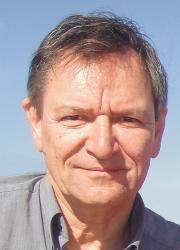 |
Prof. Dr. Matthias SchefflerDirector of the Novel-Materials Discovery Laboratory at the Fritz Haber Institutehomepage |
Research Topics:
Research Method and Area: Theoretical Material Science, Physics |
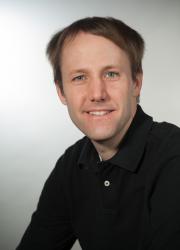 |
Dr. Andreas SchnyderGroup Leader at the Max Planck Institute for Solid State Research (MPI-FKF)homepage |
Theory of Topological Quantum Matter Our research group studies electronic and magnetic structures of quantum materials. A special focus is on topological materials, which exhibit unusual properties, such as exotic surface states and anomalous transport phenomena, that are unaffected by continuous deformations, e.g., stretching, compressing, or twisting. Our aim is to develop a theoretical framework to describe these topological properties, and to find new ways how to use them in the laboratory and for device applications. We seek to classify topological materials in terms of symmetries and to discover new remarkable examples. Current research priorities focus on the topological properties of nodal-line semimetals, topological metals with nodal planes, altermagnets, and unconventional superconductors, which we study using both analytical and numerical techniques. Research Method and Area: Theoretical Material Science, Physics |
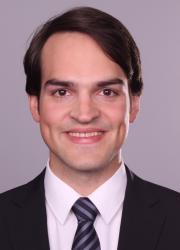 |
Dr. Niels SchroeterMax Planck Institute of Microstructure Physics, Hallehomepage |
Research topics: Synthesis and Spectroscopy of interfacial quantum matter:
Research Method and Area: Theoretical and Experimental Physics |
Jie ShanDirector of the MPI for the Structure and Dynamics of Matterhomepage |
||
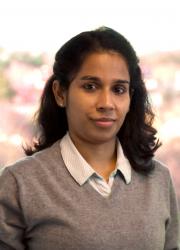 |
Dr. Aparajita SinghaEmmy Noether research groupleader at the Max Planck Institute for Solid State Research (MPI-FKF)homepage |
Quantum sensing Research:
Research Method and Area: Experimental Material Science, Physics |
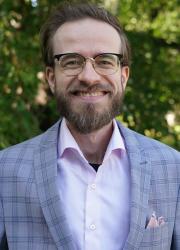 |
Libor SmejkalHead of Max Planck Research Grouphomepage |
Our research covers a range of topics in quantum solid-state physics, focusing on unconventional magnets, such as altermagnets, topological materials, and quantum phases. We are employing and developing symmetry and first principle description of quantum materials and effects with applications in spintronics and nanoelectronics. Research Method and Area: Theoretical Material Science, Physics |
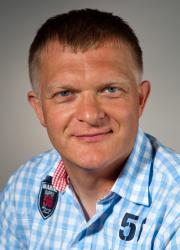 |
Dr. rer. nat. habil. Jurgen SmetMax Planck Research Group Leader "Solid State Nanophysics" at the Max Planck Institute for Solid State Research (MPI-FKF)homepage |
Solid State Nanophysics Research in the Solid State Nanophysics Group focuses on the study of the many unusual ways in which electrons organize themselves as a result of interactions and correlations among their charge and spin degrees of freedom, when these electrons are confined in one or more dimensions on the nanometer scale. Transport and optical properties are investigated with local probe methods, at low temperatures, in high magnetic fields, under high frequency radiation or any combination thereof. The electrons are confined in strictly two-dimensional crystals such as graphene or other single layers of the large class of layered materials with weak interlayer forces. Also hybrid stacks of these two-dimensional crystals are fabricated and explored in a quest for novel functionalities and interaction physics. Research Method and Area: Experimental Physics |
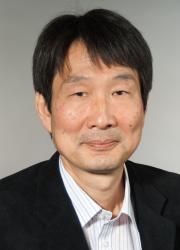 |
Prof. Dr. Hidenori TakagiDirector at the Max Planck Institute for Solid State Research (MPI-FKF) & Professor at the University of Tokyo & Humboldt Professor at the University of Stuttgarthomepage |
Quantum Materials Entanglement of electrons (electron correlations) in solids, in combination with details of the crystal lattice structure, produce a surprisingly rich variety of electronic phases, that are liquid, liquid-crystal and crystalline states of the charge and spin degrees of freedom. These complex electronic phases and the subtle competition among them very often give rise to novel functionality. The department will be studying these interesting novel phases in transition metal oxides and related compounds where the narrow d-bands, which give rise to strong electron correlations, in combination with the rich chemistry of such materials provides excellent opportunities for new discoveries. The goal of this research will be to hunt for new materials exhibiting exotic electronic states of matter, showing phenomena such as superconductivity or high thermoelectricity, and to explore them with advanced measurement techniques to unveil the physical mechanisms that could be drivers of potentially highly desirable functionality. Research Method and Area: Experimental Chemistry, Physics |
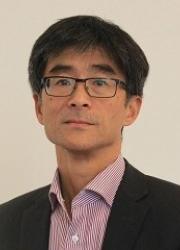 |
Prof. Dr. Liu TjengDirector of the Max Planck Institute for Chemical Physics of Solids, Dresden (MPI CPfS)homepage |
The spectacular physical properties often observed in materials containing transition metal and rare-earth elements challenge our comprehension of solid state physics These properties include superconductivity, unusually large magneto-resistance, metal-insulator transitions, heavy-fermion behaviour, multiferroicity, and phenomena involving topologically protected states. We would like to understand how the electrons in such materials interact with each other as to generate those unusual quantum phenomena. Research Method and Area: Theoretical and Experimental Physics |
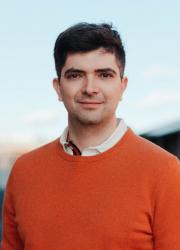 |
Dr. Uri VoolIndependent group leader at the Max Planck Institute for Chemical Physics of Solids, Dresden (MPI CPfS)homepage |
The goal of the Quantum Information for Quantum Materials group is to utilize coherent quantum systems as sensors to explore novel materials and collective quantum effects, and utilize quantum materials to create novel hybrid quantum systems. The group mainly specializes in two experimental techniques: quantum scanning magnetometry based on nitrogen-vacancy centers in diamond, and hybrid superconducting circuits integrated with quantum materials. Research Method and Area: Theoretical and Experimental Physics |
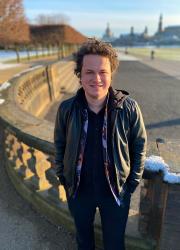 |
Alexander Wietek, Ph.D.Group Leader at the Max Planck Institute for the Physics of Complex Systemshomepage |
Superconductivity and Magnetic Correlations Our group is interested in the way quantum particles, like electrons or atoms, organize themselves while interacting with one another. This way, we aim at understanding how the macroscopic behavior of materials, like various forms of magnetism or superconductivity, emerges. Besides trying to explain existing experimental phenomena in solid-state physics, I investigate under which circumstances entirely new states of matter, like quantum spin liquids, can occur. To solve these questions, we are developing numerical technology to simulate quantum many-body systems. The quantum many-body problem is considered to be exponentially hard in the number of particles. One approach we are pursuing is to push the limits of exact simulations by developing high-performance computing software and distributed parallel algorithms for quantum many-body systems. Furthermore, we are also embracing tensor network methods to reduce computational complexity by representing data efficiently. Research Method and Area: Theoretical Computer Science, Material Science, Physics |
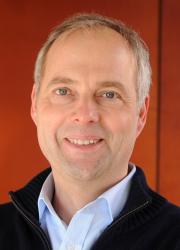 |
Prof. Dr. Jörg WrachtrupDirector of the 3rd Physics Institute, University of Stuttgarthomepage |
Solid State Quantum Physics and Technology The group capitalizes on generating synthetic spin systems in solids envisioning their precise quantum optical control. In the course of that research, spin arrays in insulators like e.g. diamond are generated and individual spin states are controlled. The systems provide a means to understand and develop control mechanisms in complex interaction many particle systems. Specifically engineered spin states are used for ultraprecise field measurements. Solid state quantum optics and magneto optics commences via integration of those structures in cavities and plasmonic resonators. Among the major long term research goals is the integration of mechanical and spin systems with the aim to explore the quantum mechanics of hybrid quantum systems with a large degree of freedom and precise unitary control. Research Method and Area: Experimental Physics |